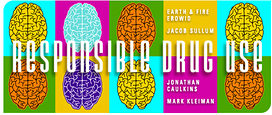Jacob argues that the fact that so many people have violated a drug law “ought to change the legal approach to marijuana at least.” I’ve never understood that logic. The household survey estimates that 25 million Americans used marijuana in the last year, but the same survey estimates that 30 million drove a vehicle while under the influence of alcohol in the last year. If the frequency of violations were itself sufficient reason to change a law, then this logic would suggest changing the laws against driving under the influence. I have also seen — but can’t locate at the moment — statistics on lifetime prevalence of committing various felonies, and they are strikingly high for U.S. males.
The frequency of offending could factor into judgments about what is the most appropriate sanction, perhaps particularly for a first offense, but does not to my mind imply that the action ought not to be illegal.

